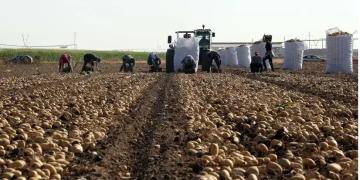Reino Unido: Addressing nutrient deficiencies can boost potato yield
Soil scientist Simon Fox from Emerald Crop science, states that up to 50% of soils in Scotland are deficient in important trace elements, impacting on yield, crop health and tuber quality; this means that by addressing these deficiencies,

Speaking at the SAC Association of Potato Producers’ annual conference in Perth on Wednesday (20 January), Mr Fox said growers could boost yields by an average of 15% by adopting a more comprehensive approach to crop nutrition.
“In the UK we tend to only focus on the three main nutrients, and completely forget about all the others that are just as important for optimum growth,” he said.
Between 35% and 50% of Scottish soils were potentially deficient in molybdenum, calcium, sulphur, zinc and magnesium, with 18-25% deficient in boron and copper. “This means the crops will be more prone to disease, will suffer from lower yields, less vigour, lower quality and inefficient use of the main nutrients,” explained Mr Fox.
Independent trials over the past three years had shown that using Emerald Crop Science’s OptiYield programme increased marketable potato yields by an average of 15% - or 6.95t/ha. Based on a comprehensive soil analysis, it formulates the exact nutrient requirements of the crop, delivered in a foliar application to maximise efficacy.
“Foliar programmes can be precisely timed to crop requirement, and don’t suffer from runoff or nutrient lock-up in the soil,” said Mr Fox. “Between 85% and 95% of the fertiliser is absorbed into the crop, compared to as little as 5% in the soil. But it’s essential to use the right formulation so the products are easily absorbed and translocated within the plant to the correct growth area.”
Average potato yields had plateaued over the past 30 years, despite advances in breeding and technology, he added. “The main reason is that we’re not meeting the crops’ nutritional needs. If we just get a bit more scientific about it the rewards will be considerable.”
Fuente: http://www.freshplaza.com/article/152144/









